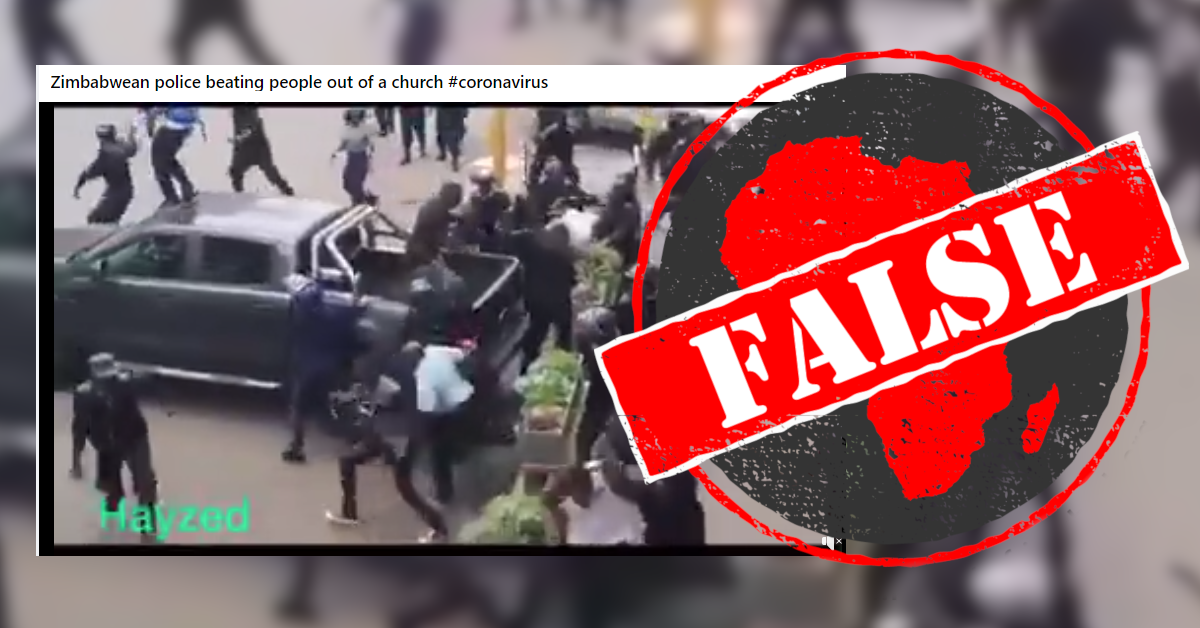The International Monetary Fund has “approved a huge fund” to be given directly to entrepreneurs and small businesses in Zimbabwe to “assist them survive the current hard economic times”. That’s the claim in a 25 July 2020 post on the Facebook page “Zimbabwe Ministry of Finance & Econ Dev”.
“I urge all interested entrepreneurs to visit the IMF website through the following link to apply online,” it adds.
Does this fund exist? We checked.

The post’s link is suspicious, and isn’t for the IMF’s website. Instead, it’s a URL for a Google Form that has been deleted.
Africa Check looked at the form before it disappeared. It required applicants to fill in their personal details: full name, location, phone number and email.
The page “Zimbabwe Ministry of Finance & Econ Dev” seems official, but was only created on 25 July and so far has just three posts.
The country’s actual Ministry of Finance and Economic Development does not have a Facebook page. The Facebook link on its website simply returns to the site’s home page.
IMF communication officer Akuamoah-Boateng Kwabena told Africa Check that the post was part of a scam used in several countries.
“This is indeed false,” he said.
Africa Check has recently debunked a number of almost identical scams that claim government departments in African countries are offering grants in partnership with international organisations.
The scams all ask for people’s personal details. – Dancan Bwire
“I urge all interested entrepreneurs to visit the IMF website through the following link to apply online,” it adds.
Does this fund exist? We checked.

Link not to IMF website
The post’s link is suspicious, and isn’t for the IMF’s website. Instead, it’s a URL for a Google Form that has been deleted.
Africa Check looked at the form before it disappeared. It required applicants to fill in their personal details: full name, location, phone number and email.
Another version of a widespread scam
The page “Zimbabwe Ministry of Finance & Econ Dev” seems official, but was only created on 25 July and so far has just three posts.
The country’s actual Ministry of Finance and Economic Development does not have a Facebook page. The Facebook link on its website simply returns to the site’s home page.
IMF communication officer Akuamoah-Boateng Kwabena told Africa Check that the post was part of a scam used in several countries.
“This is indeed false,” he said.
Africa Check has recently debunked a number of almost identical scams that claim government departments in African countries are offering grants in partnership with international organisations.
The scams all ask for people’s personal details. – Dancan Bwire
Republish our content for free
For publishers: what to do if your post is rated false
A fact-checker has rated your Facebook or Instagram post as “false”, “altered”, “partly false” or “missing context”. This could have serious consequences. What do you do?
Click on our guide for the steps you should follow.
Publishers guideAfrica Check teams up with Facebook
Africa Check is a partner in Meta's third-party fact-checking programme to help stop the spread of false information on social media.
The content we rate as “false” will be downgraded on Facebook and Instagram. This means fewer people will see it.
You can also help identify false information on Facebook. This guide explains how.


Add new comment